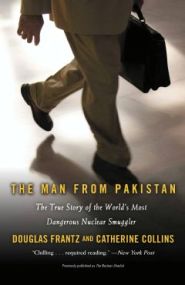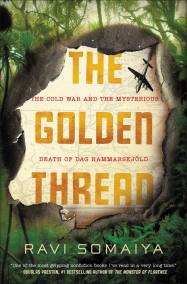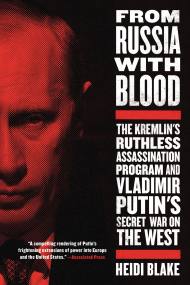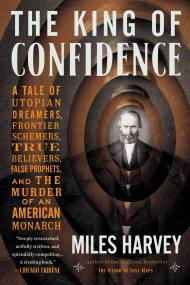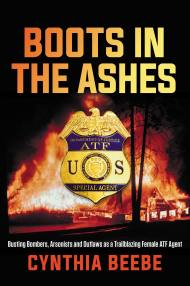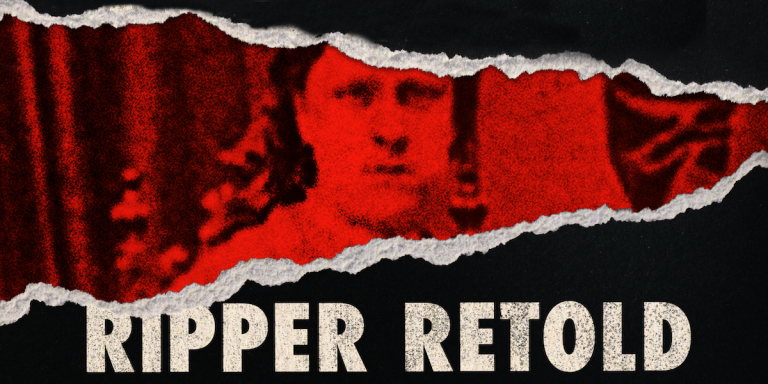8 Twisted True Crime Stories Filled With Mayhem and Intrigue
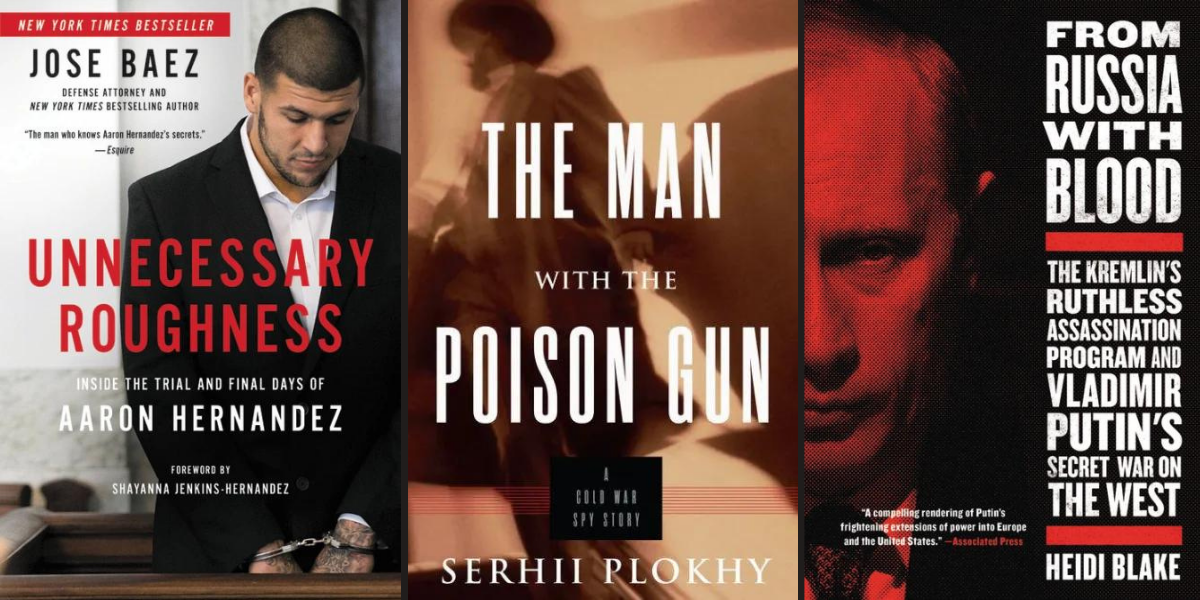 Crime, chaos, and killers—uncover the dark and twisted parts of history with this collection of true crime novels.
Crime, chaos, and killers—uncover the dark and twisted parts of history with this collection of true crime novels.
Many have heard of NXIVM and its creator, Keith Raniere, the unassuming Albany man now prosecuted for ensnaring tens of thousands of people in the US, Mexico, Canada and elsewhere, to do his bidding and pay millions of dollars to participate in his self-improvement methodology. But where did Keith Raniere begin?
Enter Toni Natalie, Keith’s Patient Zero, the first one indoctrinated into Raniere’s methodology and the first one to escape. THE PROGRAM begins with the origin story of NXIVM, follows its rise to international prominence, and takes the reader into the downfall of Raniere through Toni’s eyes. During this time she bore witness to the evolution of his methodology, including his use of sex, blackmail, and employment of psychological tools such as neuro-linguistic programming to control and punish those who would not heed his wishes. She uniquely details the fortunes lost and the lives left in disarray that she witnessed contemporaneously, including members of DOS, a group of women coerced into sexual acts under the guise of a “women’s empowerment” inner circle, whom Raniere exercised extreme control over directly and through his lieutenants.
In the fall of 1961, KGB assassin Bogdan Stashinsky defected to West Germany. After spilling his secrets to the CIA, Stashinsky was put on trial in what would be the most publicized assassination case of the entire Cold War. The publicity stirred up by the Stashinsky case forced the KGB to change its modus operandi abroad and helped end the career of Aleksandr Shelepin, one of the most ambitious and dangerous Soviet leaders. Stashinsky’s testimony, implicating the Kremlin rulers in political assassinations carried out abroad, shook the world of international politics. Stashinsky’s story would inspire films, plays, and books-including Ian Fleming’s last James Bond novel, The Man with the Golden Gun.
The world has entered a second nuclear age. For the first time since the end of the Cold War, the threat of nuclear annihilation is on the rise. Should such an assault occur, there is a strong likelihood that the trail of devastation will lead back to Abdul Qadeer Khan, the Pakistani father of the Islamic bomb and the mastermind behind a vast clandestine enterprise that has sold nuclear secrets to Iran, North Korea, and Libya. Khan’s loose-knit organization was and still may be a nuclear Wal-Mart, selling weapons blueprints, parts, and the expertise to assemble the works into a do-it-yourself bomb kit. Amazingly, American authorities could have halted his operation, but they chose instead to watch and wait. Khan proved that the international safeguards the world relied on no longer worked.
On September 17, 1961, Dag Hammarskjöld boarded a Douglas DC6 propeller plane on the sweltering tarmac of the airport in Leopoldville, the capital of the Congo. Hours later, he would be found dead in an African jungle with an ace of spades playing card placed on his body.
Hammarskjöld had been the head of the United Nations for nine years. He was legendary for his dedication to peace on earth. But dark forces circled him: Powerful and connected groups from an array of nations and organizations—including the CIA, the KGB, underground militant groups, business tycoons, and others—were determined to see Hammarskjöld fail.
They thought they had found a safe haven in the green hills of England. They were wrong. One by one, the Russian oligarchs, dissidents, and gangsters who fled to Britain after Vladimir Putin came to power dropped dead in strange or suspicious circumstances. One by one, their British lawyers and fixers met similarly grisly ends. Yet, one by one, the British authorities shut down every investigation—and carried on courting the Kremlin.
The spies in the riverside headquarters of MI6 looked on with horror as the scope of the Kremlin’s global killing campaign became all too clear. And, across the Atlantic, American intelligence officials watched with mounting alarm as the bodies piled up, concerned that the tide of death could spread to the United States. Those fears intensified when a one-time Kremlin henchman was found bludgeoned to death in a Washington, D.C. penthouse. But it wasn’t until Putin’s assassins unleashed a deadly chemical weapon on the streets of Britain, endangering hundreds of members of the public in a failed attempt to slay the double agent Sergei Skripal, that Western governments were finally forced to admit that the killing had spun out of control.
Unflinchingly documenting the growing web of death on British and American soil, Heidi Blake bravely exposes the Kremlin’s assassination campaign as part of Putin’s ruthless pursuit of global dominance—and reveals why Western governments have failed to stop the bloodshed. The unforgettable story that emerges whisks us from London’s high-end night clubs to Miami’s million-dollar hideouts ultimately renders a bone-chilling portrait of money, betrayal, and murder, written with the pace and propulsive power of a thriller.
In the summer of 1843, James Strang, a charismatic young lawyer and avowed atheist, vanished from a rural town in New York. Months later he reappeared on the Midwestern frontier and converted to a burgeoning religious movement known as Mormonism. In the wake of the murder of the sect’s leader, Joseph Smith, Strang unveiled a letter purportedly from the prophet naming him successor, and persuaded hundreds of fellow converts to follow him to an island in Lake Michigan, where he declared himself a divine king.
From this stronghold he controlled a fourth of the state of Michigan, establishing a pirate colony where he practiced plural marriage and perpetrated thefts, corruption, and frauds of all kinds. Eventually, having run afoul of powerful enemies, including the American president, Strang was assassinated, an event that was front-page news across the country.
When renowned defense attorney Jose Baez received a request for representation from Aaron Hernandez, the disgraced Patriots tight-end was already serving a life sentence for murder. Defending him in a second, double-murder trial seemed like a lost cause–but Baez accepted the challenge, and their partnership culminated in a dramatic courtroom victory, a race to contest his first conviction, and ultimately a tragedy, when Aaron took his own life days after his acquittal.
This riveting, closely-observed account of Aaron’s life and final year is the only book based on countless intimate conversations with Aaron, and told from the perspective of a true insider. Written with the support of Hernandez’s fiancée, Unnecessary Roughness takes readers inside the high-profile trial, offering a dramatic retelling of the race to obtain key evidence that would exonerate Hernandez, and later play a critical role in appealing his first conviction.
Boots in the Ashes is the memoir of Cynthia Beebe’s groundbreaking career as one of the first women special agents for the Bureau of Alcohol, Tobacco, Firearms and Explosives, (ATF). A smart and independent girl growing up in suburban Chicago, she unexpectedly became one of the first women to hunt down violent criminals for the federal government.
As a special agent for 27 years, Beebe gives the reader first-hand knowledge of the human capacity for evil. She tells the story of how, as a young woman, she overcame many obstacles on her journey through the treacherous world of illegal guns, gangs, and bombs. She battled conflicts both on the streets and within ATF. But Beebe learned how to thrive in the ultra-masculine world of violent crime and those whose job it is to stop it.
Beebe tells her story through the lens of six major cases that read like crime fiction: four bombings, one arson fire and a massive roundup of the Hell’s Angels on the West Coast. She also shares riveting never before revealed trial testimonies, including killers, bombers, arsonists, victims, witnesses and judges.
By clicking 'Sign Up,' I acknowledge that I have read and agree to Hachette Book Group’s Privacy Policy and Terms of Use


